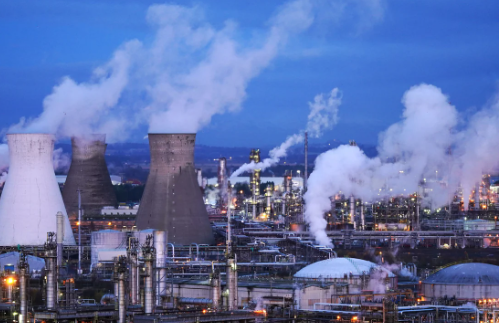Methane Emissions and Climate Change Concerns
Methane emissions are rising rapidly, and this trend poses an important threat to climate change mitigation efforts. Scientists and policymakers are calling for immediate action. Nearly 160 countries have committed to reducing methane emissions by 30% from 2020 levels by 2030. The latest Global Methane Budget report emphasizes the urgency.
Heat-Trapping Capabilities of Methane
Methane is a potent greenhouse gas. It traps heat more effectively than carbon dioxide (CO2). Reducing methane can yield quicker climate benefits compared to CO2 reductions. Methane remains in the atmosphere for about a decade, while CO2 lingers for centuries. Over 20 years, methane is estimated to be 80 times more impactful than CO2.
Human activities contribute to methane emissions. Two-thirds of global emissions stem from agriculture, fossil fuels, and waste management. Notably, rice farming and livestock are major contributors. In the last two decades, human-caused methane emissions have increased by 20%. Efforts to mitigate these emissions are primarily focused on the oil and gas sector.
Natural Methane Sources
One-third of methane emissions originate from natural sources. Thawing permafrost, wetlands, and peat bogs are important contributors. Rising global temperatures may exacerbate these emissions. Understanding the origin of methane is crucial for effective management. Scientists analyze isotope signatures to differentiate between biological and industrial sources.
Recent research suggests the world may have surpassed a critical warming threshold of 1.5 degrees Celsius. This increase poses risks of irreversible climate impacts. The analysis compared atmospheric gas records from Antarctic ice cores. The consensus indicates that global warming is occurring faster than previously anticipated.
Extreme Weather Events
Ocean warming intensifies hurricanes, causing rapid escalation in storm strength. For example, Hurricane Milton transitioned from a tropical storm to a Category 3 hurricane in just one day. Additionally, climate change is linked to increased wildfire intensity and frequency. Research indicates that toxic wildfire smoke contributes to thousands of deaths annually.
Coral Bleaching and Ecosystem Stress
The world is experiencing an important coral bleaching event. This is the largest on record, raising concerns about reef recovery. Coral ecosystems are vital for marine biodiversity and coastal protection. The ongoing stressors threaten their survival.
Global Carbon Emissions Trends
Carbon dioxide emissions are projected to rise in 2024. Major contributors include China, the United States, and India. These regions account for nearly 60% of global emissions. The Global Carbon Budget report marks the urgency of reducing fossil fuel reliance to meet climate targets.
Private Aviation Emissions
Private aviation has seen a 46% increase in emissions over five years. This sector contributes to overall aviation carbon emissions. Most private flights are concentrated in the United States. The study indicates that private aviation is increasingly relevant in climate discussions.
The implications of rising methane and carbon emissions are deep. Without important reductions, the remaining carbon budget could be exhausted within six years. The need for regulatory measures in sectors like private aviation is critical. Sustainable practices must be prioritised to mitigate climate change impacts.
Important Facts for Exams:
- FAIRR: The food-focused investor initiative FAIRR aims to address climate change through sustainable agricultural practices. It advocates for reducing methane emissions in the oil and gas sector.
- AMOC: The Atlantic Meridional Overturning Circulation is crucial for regulating climate. It transports warm water from the tropics to the North Atlantic and has weakened by about 15% since 1950.
- LULUCF: Land-use, land-use change, and forestry refers to emissions from land management. It averaged 1.1 billion tonnes of carbon per year and is an important contributor to global CO2 levels.
- COP29: The 29th Conference of the Parties is a UN climate summit. It aims to address climate change and is crucial for negotiating global emissions reductions and climate action commitments.
Month: Current Affairs - November, 2024
Category: Environment Current Affairs


